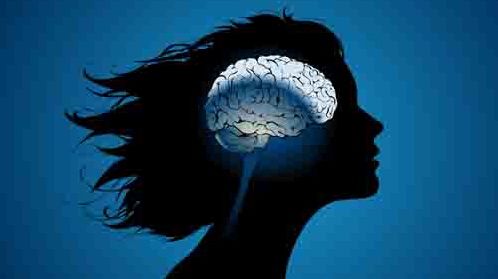Surprising Science
All Stories
At the heart of every galaxy like our own Milky Way lies a supermassive black hole, but scientists are unsure which develops first.
Physicist and Big Think blogger Michio Kaku is the closest thing the world has to real-life wizard. With his shocking white hair, he makes prophesies about fantastic technologies that science […]
Research suggests that not only are male and female brains different, but that they exist on a spectrum with autism and psychosis at either end.
Humans have typically been passive listeners for alien radio frequencies. Should we actively seek out foreign life by sending pre-emptive signals into space?
“How worried should one be about [full body scans in airports]? Are they truly a grave threat to individual privacy, as civil libertarians contend?”
“Can—and should—science and religion avoid each other’s turf?” Susan Jacoby insists we mustn’t shirk from moments when science and religion offer opposing viewpoints.
“Two planets similar to Earth have been discovered circling the dwarf star Gliese 581. Using new, super telescopes, astronomers are now searching for signs of life.”
“Autonomous cars are years from mass production, but technologists who have long dreamed of them believe that they can transform society as profoundly as the Internet has.”
New wireless networks that relay body organ data to mobile devices will allow athletes and at-risk patients to monitor their health more effectively.
“Quantum entanglement—a bizarre instantaneous link between particles—has been proven to occur.” Understanding the phenomenon may result in much faster computers.
“The impulse to be social is so deep-seated in human consciousness that it’s even evident in the womb, suggests a new study on the interaction of unborn twins.”
According to a new, nationally representative, dataset released this week, black Americans use condoms during vaginal intercourse significantly more than white Americans.
“Laptops in college classrooms are no longer just educational tools – they’re distracting our future workers. During class, students tumble down these rabbit holes of diversion.”rn
“Debunking the myth of the lone maverick, health researchers suggest that groups of doctors outperform individuals not only in diagnosing problems but also in treating them.”
“Pain makes us loyal, and the surest way to improve the performance of a product is to raise its price.” The Frontal Cortex on our irrational devotion to the things that vex us most.
“Scientists in China have developed a strong, highly conductive carbon yarn that could be used to make spacesuits, bullet-proof vests, and radiation suits.”
The theory behind the substance graphene was first explored by theoretical physicist Philip Wallace in 1947 as kind of a starting point when he was doing research trying to understand […]
Dr. Gary Marcus, a psychology professor at New York University, says we should develop a “Google-like” chip that could be implanted in our brains to enhance human memory.
“Within twenty years, astronomy could become the first discipline where discoveries outpace scientists’ ability to keep up with them.”
“Values are not logical deductions from processes taking place inside peoples’ heads but are instead arrived at through an interplay of experience, reflection, and debate.”
Holding a pose that opens up a person’s body and takes up space will alter hormone levels and make the person feel more powerful.
Graphene is the world’s thinnest and toughest material—a transparent form of carbon one atom thick. Two Russian scientists who isolated the material have won the Nobel Prize.
“Although in vitro fertilization has brought joy to many families, the Nobel Prize for its co-developer is also a reminder of the bioethical questions raised by IVF technology.”
“‘We like to speculate about technology in general’, but the content of the message matters more than medium we receive it through, says The Frontal Cortex Blog.
“Are humans continuing to evolve or has modern culture stopped evolution?” The answer affects assumptions made by public policy says Yale evolutionary biologist Stephen Stearns.
“Through science and technology, we are getting better at bringing cosmic quantities to the human scale.” “The everyday is slowly but surely inching towards the cosmic.”
Angry Birds is a chuckle-inspiring game about wingless birds who have been wronged by a gang of pigs. Virginia Heffernan explains how she loves it but also now hates everything.
“For decades, antipsychotic drugs were a niche product. Today, they’re the top-selling class of pharmaceuticals in America.” Duff Wilson on the shadowy underworld of big pharma.
“The letters reveal that the discovery of the double helix could have turned out differently if the characters involved had a little more information.”
As neuroimaging labs use scanners to reveal more and more details about how the brain works, their findings are increasingly affecting the legal system.







